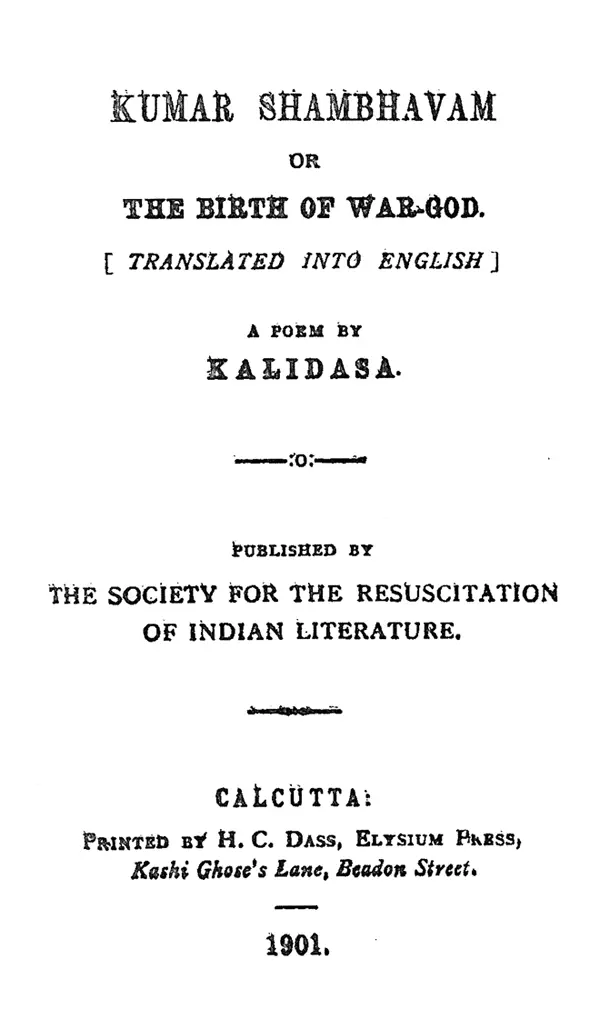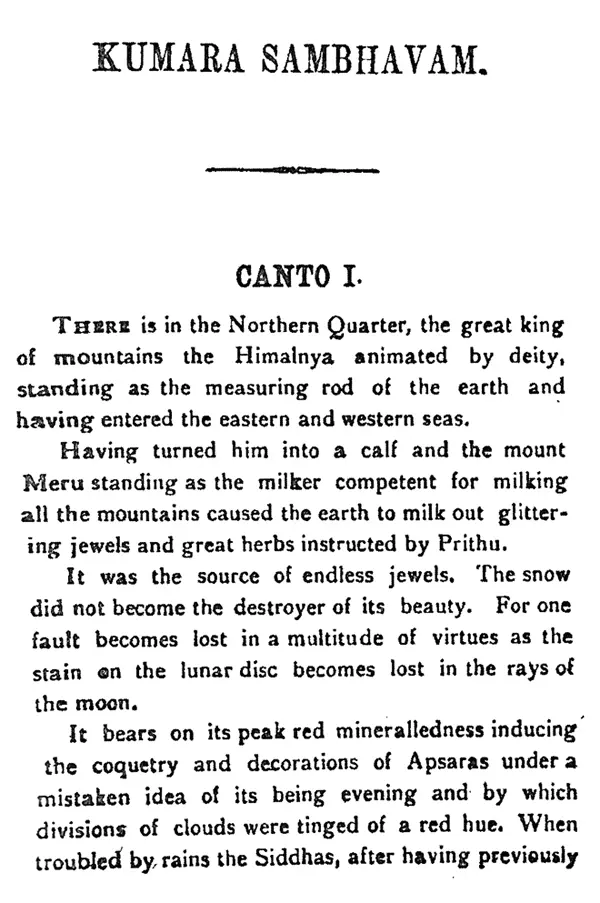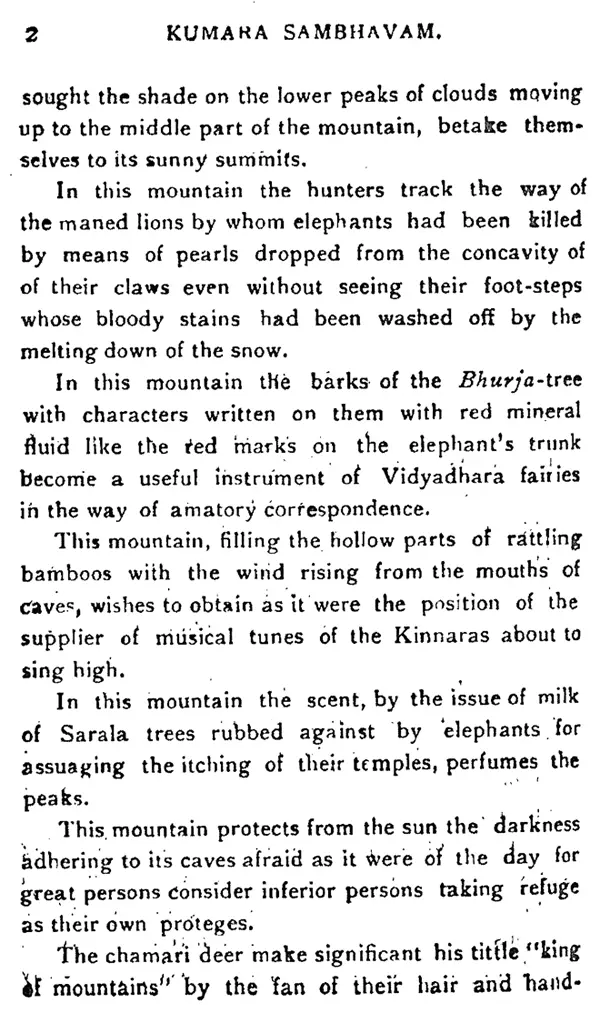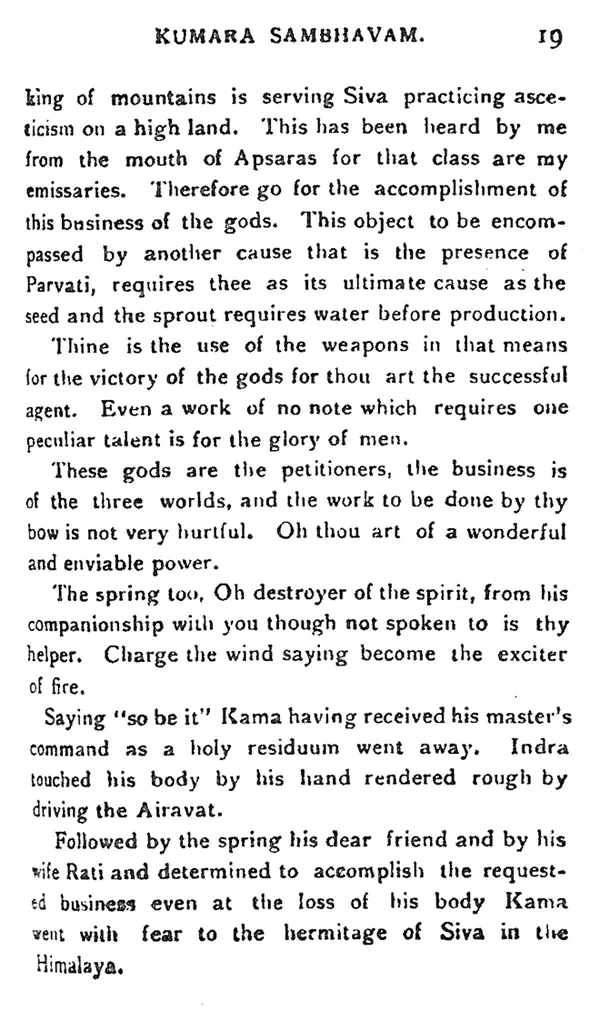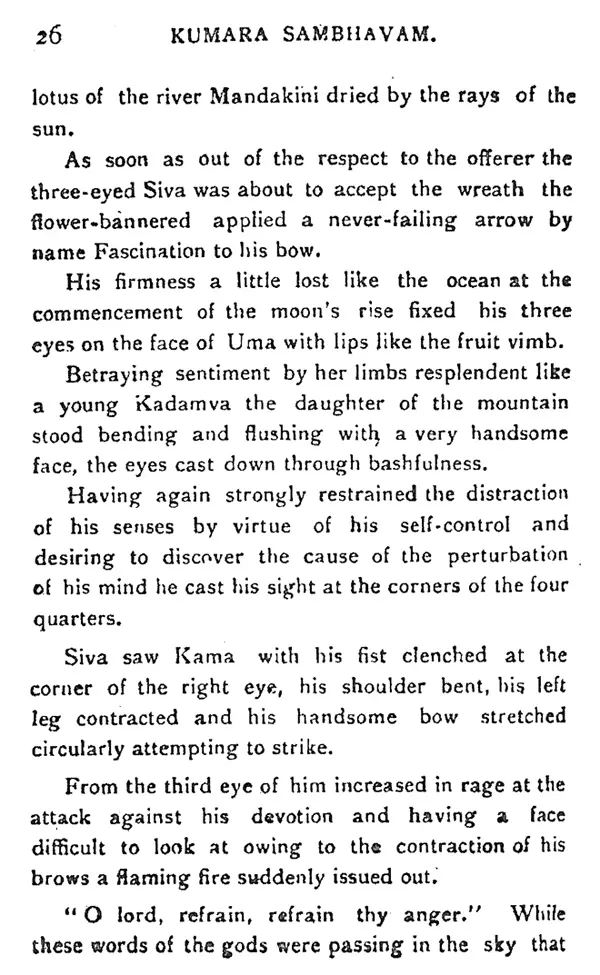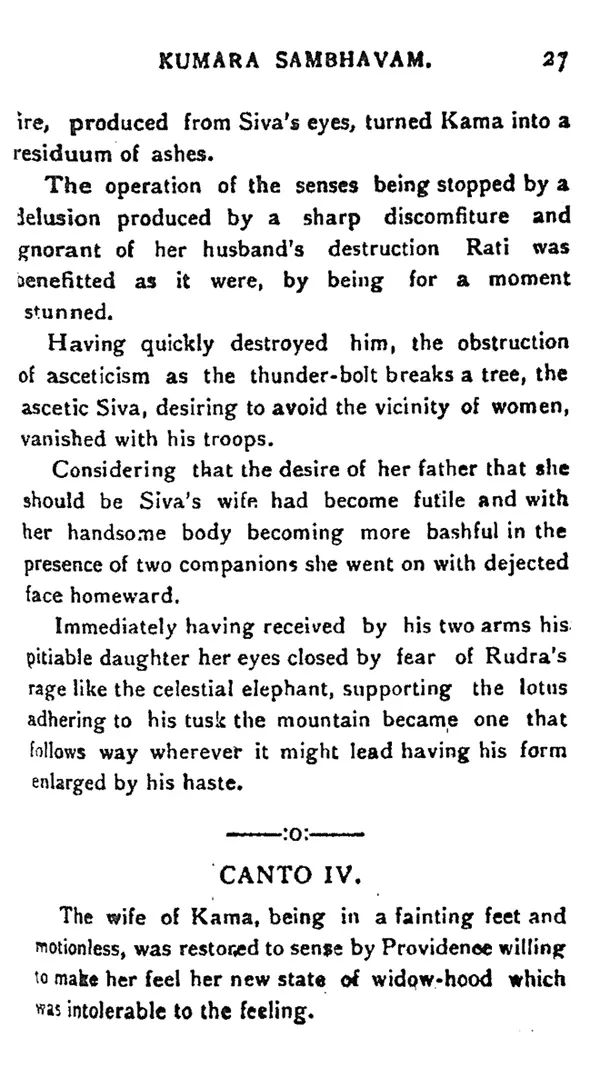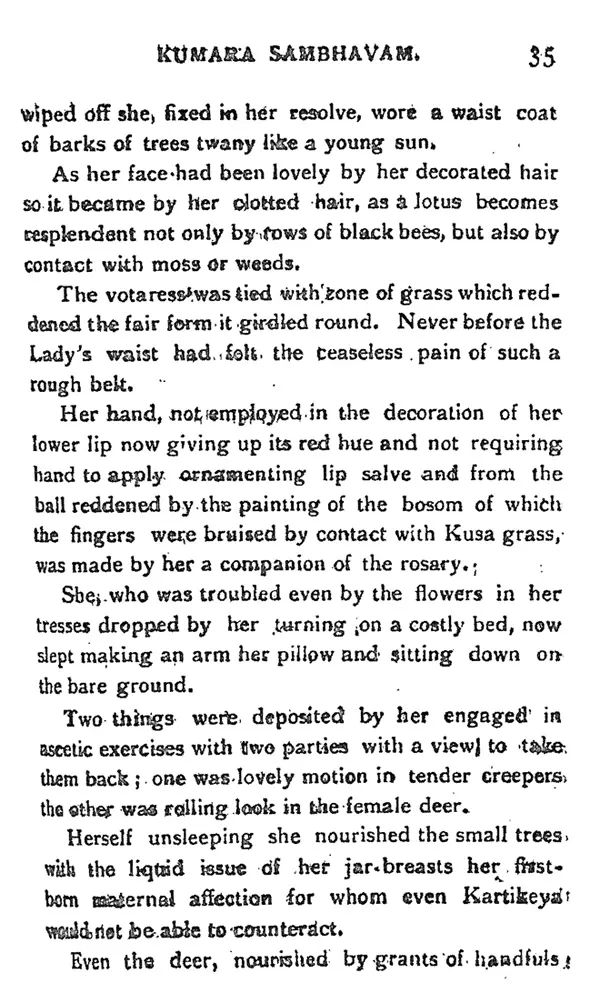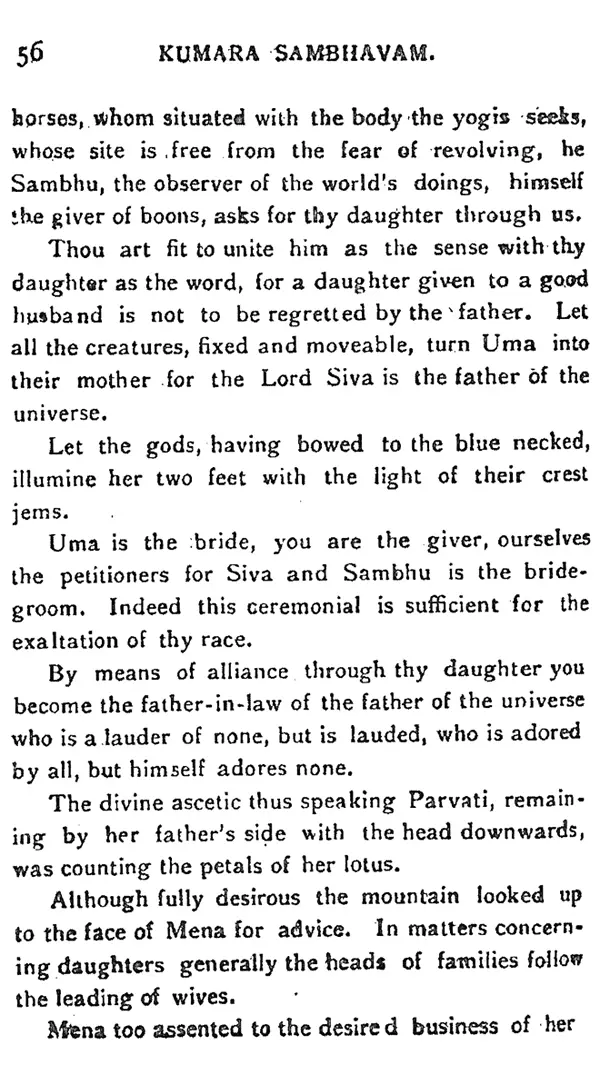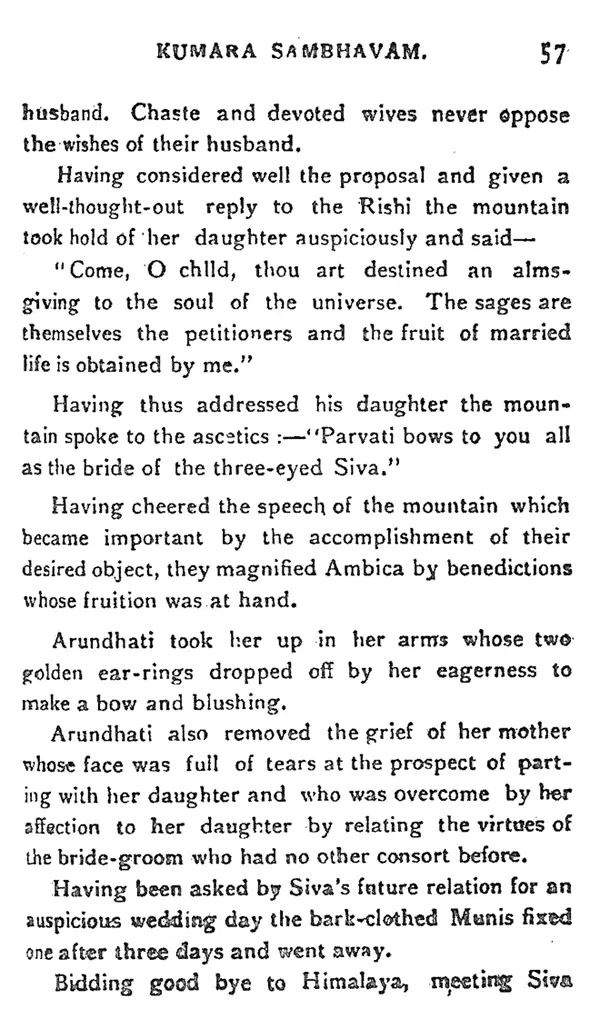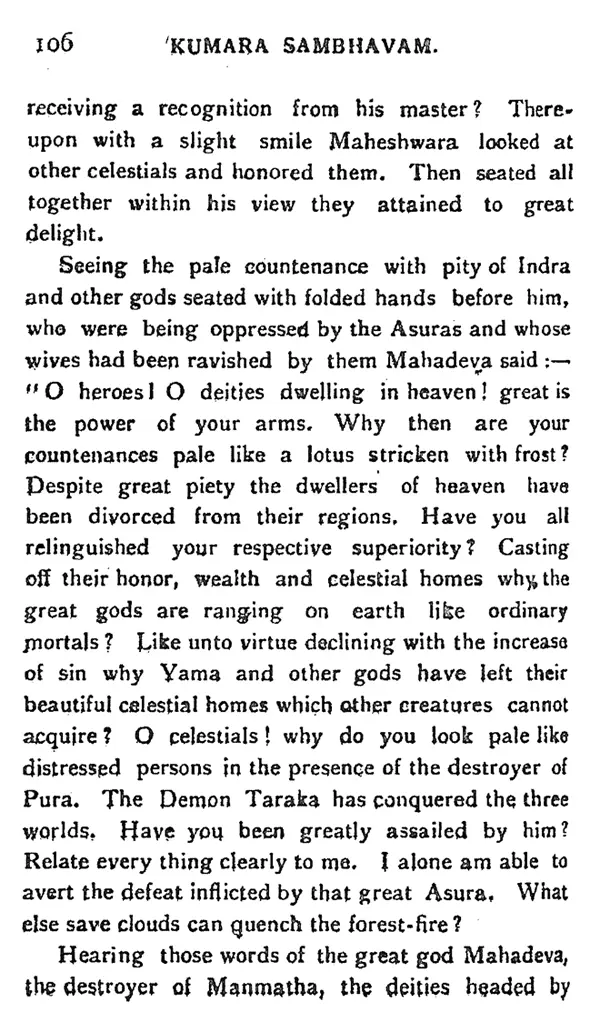
Kumar Shambhavam Or The Birth of War-God
Book Specification
| Item Code: | UBA627 |
| Author: | KALIDASA |
| Publisher: | Gyan Publishing House, New Delhi |
| Language: | English |
| Edition: | 2021 |
| ISBN: | 9788121224659 |
| Pages: | 138 |
| Cover: | HARDCOVER |
| Other Details | 9.00 X 6.00 inch |
| Weight | 300 gm |
Book Description
Kumarasaṃbhavam is an epic poem by Kalidasa. It is widely regarded as the finest work of Kālidāsa as well as the greatest kavya poem in Classical Sanskrit. The style of description of spring set the standard for nature metaphors pervading many centuries of Indian literary tradition. Kumarasambhavam basically talks about the birth of Kumara (Kartikeya), the son of Shiva and Parvati. The period of composition is uncertain, although Kālidāsa is thought to have lived in the 5th century. Kumārasambhava literally means "The Birth of Kumāra". This epic of seventeen cantos entails Sringara rasa, the rasa of love, romance, and eroticism, more than Vira rasa (the rasa of heroism). Tārakasura, a rakshasa (demon) was blessed that he could be killed by none other than Shiva's son, however, Shiva had won over Kama, the god of love. Parvati performed great tapas (or spiritual penance) to win the love of Shiva. Consequently, Shiva and Parvati's son Kartikeya was born to restore the glory of Indra, king of the Gods.
Kalidasa (4th-5th century CE) was a Classical Sanskrit author who is often considered ancient India's greatest playwright and dramatist. His plays and poetry are primarily based on the Vedas, the Ramayana, the Mahabharata and the Puranas. His surviving works consist of three plays, two epic poems and two shorter poems. Much about his life is unknown except what can be inferred from his poetry and plays. His works cannot be dated with precision, but they were most likely authored before the 5th century CE. According to the scholar Pandit Digambar Jha of Kameshwar Singh Darbhanga Sanskrit University in his book "Mithila and Kalidas" claimed Kalidasa as him being a Maithil and a gem of Mithila. He lived at Kalidas Dih in Madhubani district of Bihar.
